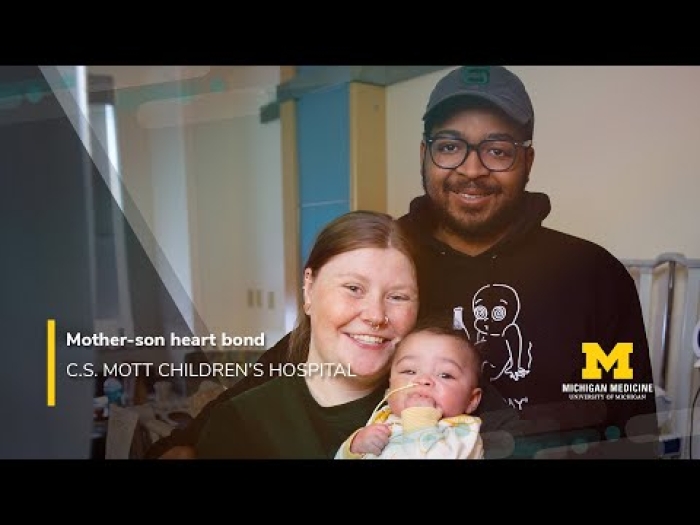Technology can be applied to reach more rural patients and their doctors
Author |
For patients who live in rural areas, driving to see a specialist in a large city or at a university hospital can be challenging, if not impossible.
And yet, it’s a necessity for better health: People with liver disease often require multiple visits to adjust medications or treat related complications.
“I’ve always been frustrated when I can’t help patients who live in distant areas and don’t have a car or money for transportation,” says University of Michigan gastroenterologist Grace L. Su, M.D. who is chief of gastroenterology at the VA Ann Arbor Healthcare System.
Even when a patient is able to see his or her local primary care physician, problems could arise. Those practitioners may have knowledge gaps, little to no communication with the patient’s specialist or time constraints that lead to poor quality care.
That divide is especially personal for Su.
After one of her patients died after he couldn’t return for a follow-up visit, she turned frustration into action by researching how technology could be applied to reach more rural patients and their doctors.
In a study published in Hepatology, Su and her team affirmed that communication is key: Patients of primary care physicians who participated in video consultations with liver disease specialists had a 54 percent higher survival rate than patients whose primary doctors didn’t participate in those exchanges.
“Primary care providers really want to do the right thing, but they may not have all the necessary tools,” says Su. “This research shows an excellent way to impart specialty knowledge to them. The learning is mutual. They are not just learning; they are teaching us.”
Joining forces via video
Such thinking isn’t new. Years ago, researchers at the University of New Mexico developed the Extension of Community Healthcare Outcome (ECHO) program to train primary care providers to treat hepatitis C in patients living in rural and remote areas.
The Veterans Health Administration adopted this “telementoring” model and renamed the program Specialty Care Access Network-Extension of Community Healthcare Outcome (SCAN-ECHO). The VA Ann Arbor Healthcare System was one of the first organizations to utilize the SCAN-ECHO program for chronic liver disease.
Using vital records provided by the Veterans Health Administration, researchers learned that there were 62,237 veteran patients with liver disease in Michigan, central Indiana and northwest Ohio between 2011 to 2015.
Of that group, only 513 patients had a primary care physician who engaged in a SCAN-ECHO consultation about their case.
During those consultations, videoconferencing was used to link primary care providers and specialists. The individual patient cases were discussed and treatment plans and recommendations were made in real time. Patients whose cases were chosen to receive video consultation were more likely to be younger, live in rural areas and have more severe liver disease, including evidence of cirrhosis.
Participating doctors benefit along with the patients.
“It is one thing to for a primary care provider to read or learn about a disease, but another when they have a specific patient in mind. This case-based teaching magnifies the potential for learning. Creating many mini-specialists from primary care providers is the most powerful aspect of the SCAN-ECHO program,” says Su, who directs the SCAN-ECHO clinics at the Ann Arbor VA. “It’s a medical force multiplier.”
Present limits, future potential
The new research had some limitations. Providers who voluntarily did the virtual consultations may have had a strong interest in improving their skills and learning more, but direct comparisons couldn’t be made from the two groups. Information about patients’ socioeconomic status was also unavailable.
Instead, researchers adjusted for distance, illness severity, demographics and comorbidities.
But it seems that doctor involvement in the video conferencing is why patients survived longer.
“It does not appear to be a patient compliance issue since the program is not a direct specialist-to-patient interaction but one between specialists and primary care providers,” says Su. “It seems that primary care providers who participated in the SCAN-ECHO were more likely to follow the guidelines for cirrhosis and perform the screening for esophageal varicose veins and liver cancer in the patients who need it.”
“I think it is the behavior of the provider that’s the reason patients lived longer.”
Future research will involve determining if the primary care providers are applying the knowledge learned from the SCAN-ECHO program to other patients who were not enrolled in the program.
Although the Veterans Health Administration is a fully integrated health care system that treats a unique population, Su notes that similar video consultation programs could benefit any situation where specialty care and primary care providers need to partner up — especially when distance is a factor.
“Video consultation is the future of medicine,” says Su. “Our only other alternative is to send specialists to rural areas, and that’s not going to happen.”

Department of Communication at Michigan Medicine





